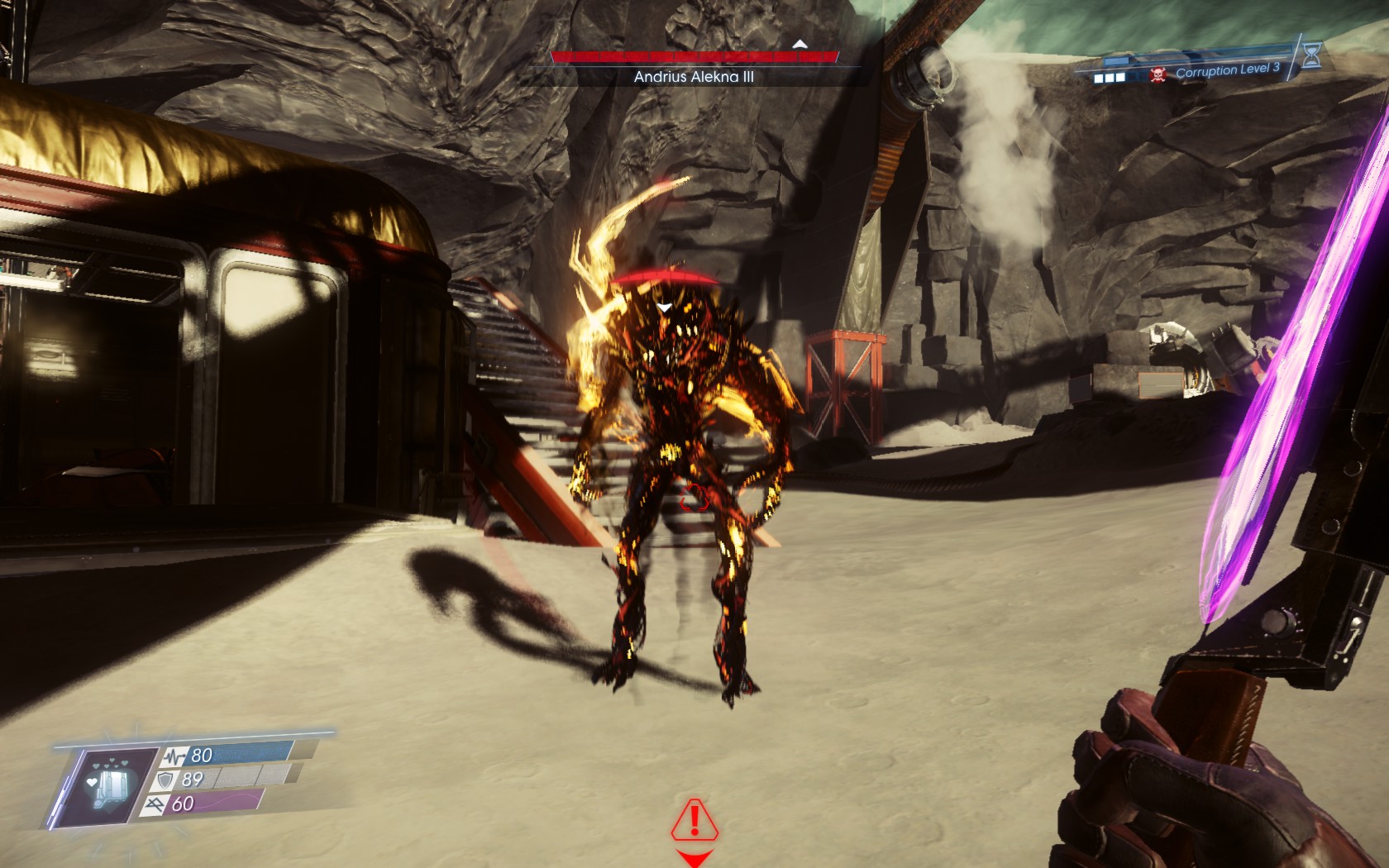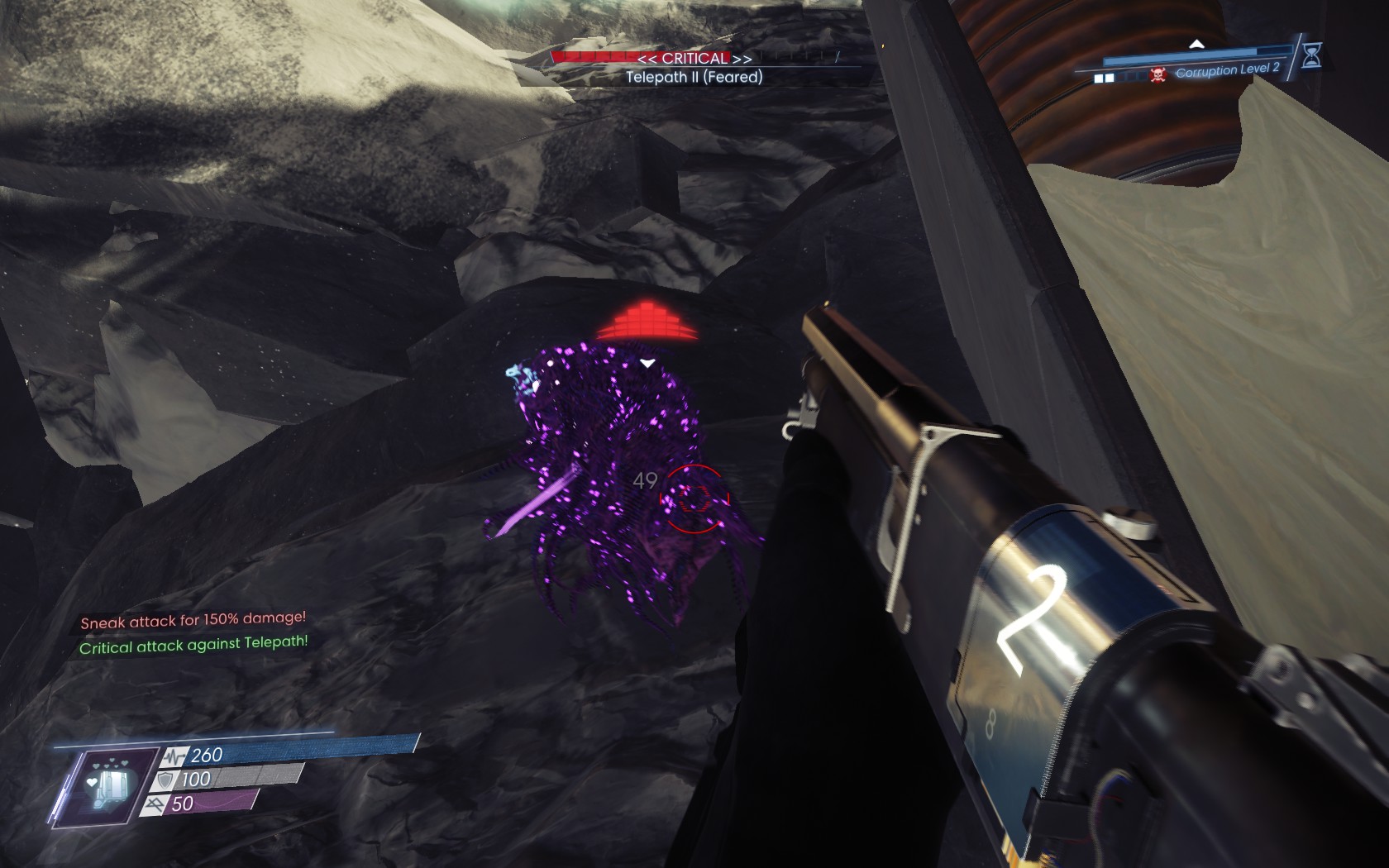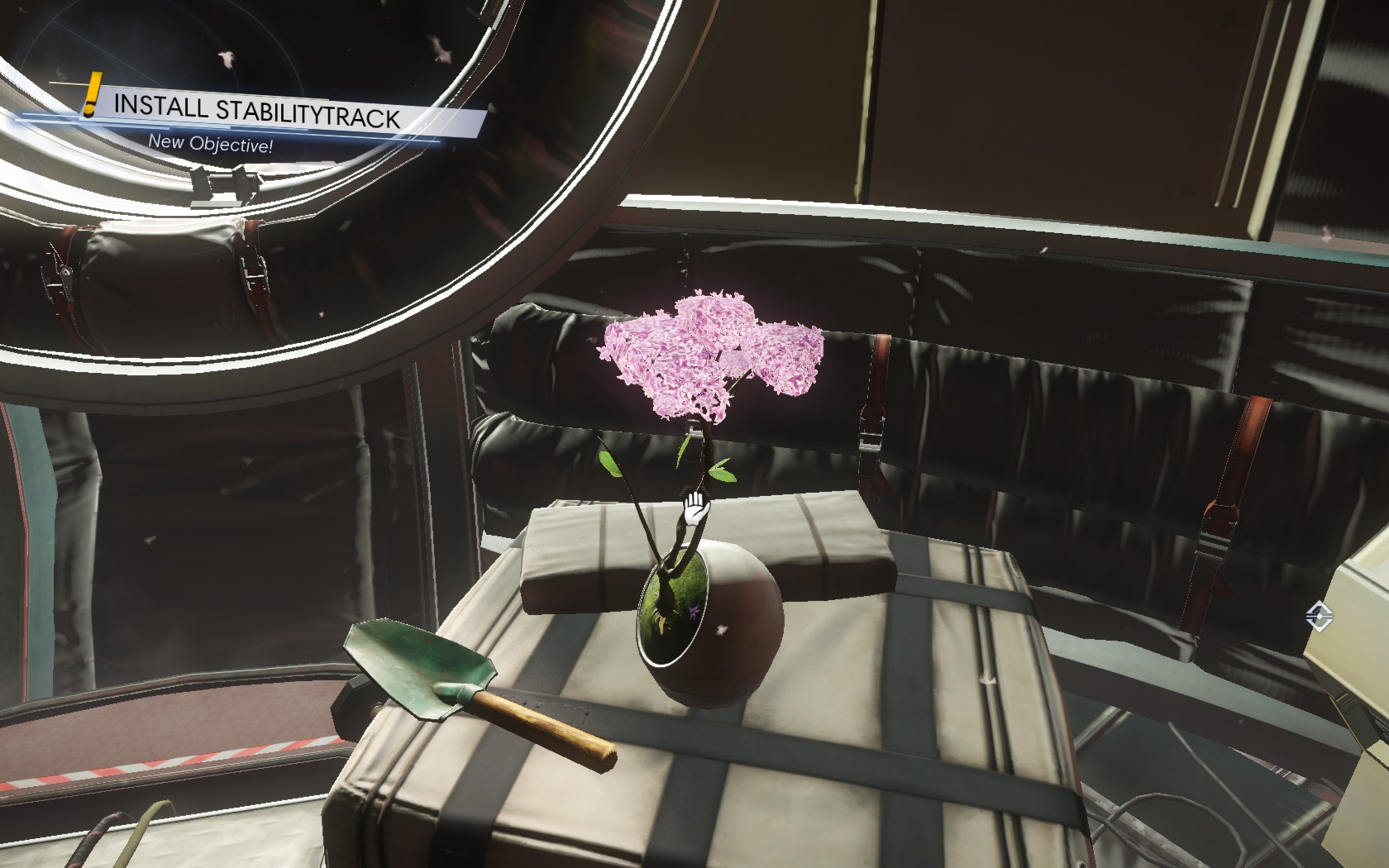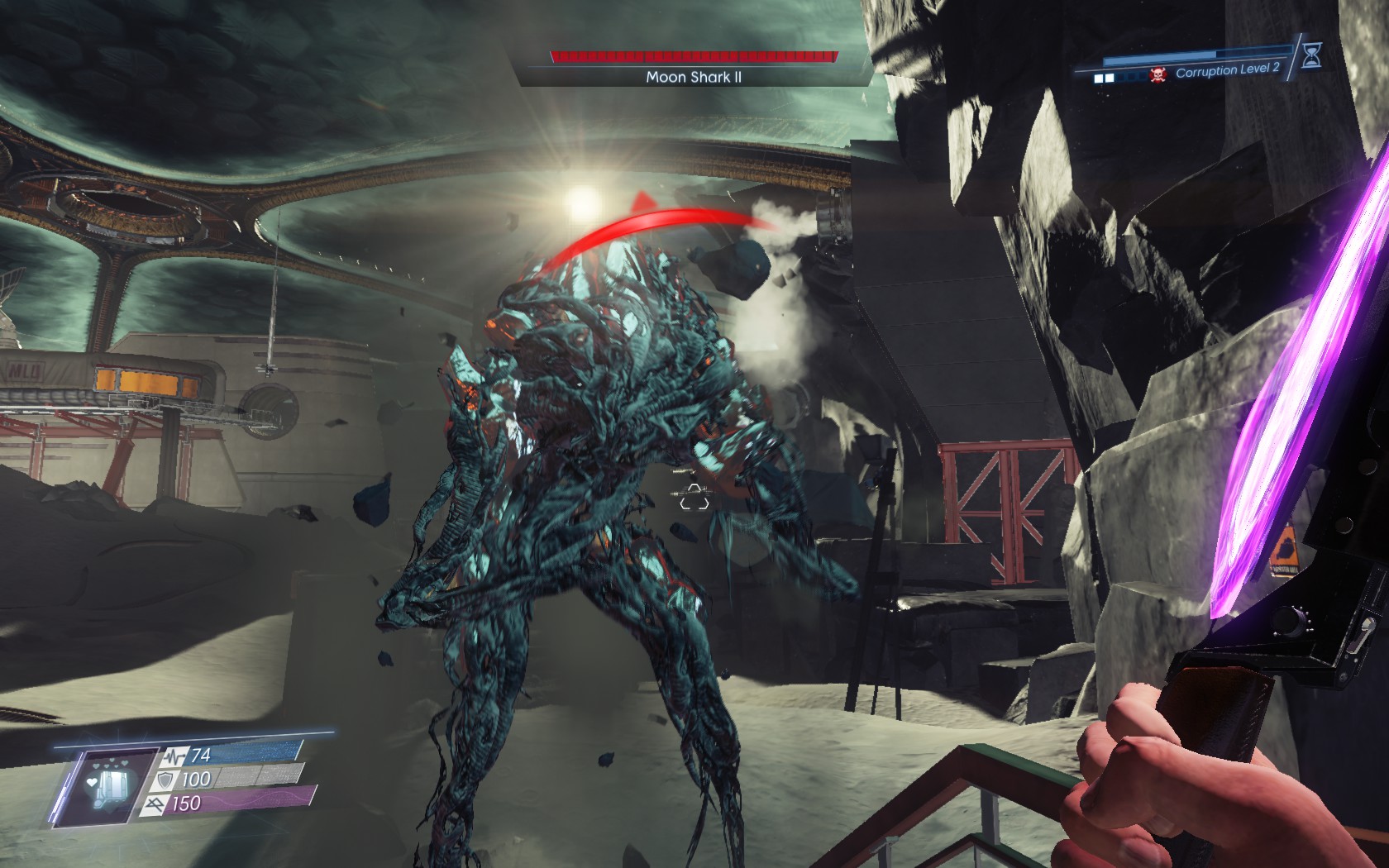Our Verdict
A smart expansion that probably won't be for everybody—but the right player will love it.
PC Gamer's got your back
What is it? A time-looping expansion for 2017's 79%-rated Prey.
Expect to pay £13/$20
Developer Arkane Studios Austin
Publisher Bethesda
Reviewed on Intel I5 3570K@3.40GHz, 8GB RAM, Nvidia GeForce GTX 970
Multiplayer 5v1 PvP mode coming soon
Link Official Site
Buy it Steam
When I finished Prey, I felt like I'd comprehensively done all the good stuff in the game, including the major sidequests. My two main issues upon reaching the credits were the endless fights with corrupted operators, the game's drone enemies, and the feeling that I'd seen the same beautiful environments too many times. This DLC, then, is basically about endless fights in the same few environments over and over again.
Mooncrash is Prey's curious spin on a roguelite, channelled within a story framework where you're entering a simulation of a TranStar base many times over to figure out what happened there. It's somewhere between a new mode and a traditional expansion. There are five playable characters, each with a different power set: a security specialist with high HP capabilities but no typhon powers, for example, or an engineer who can drop a turret. Riley Yu, meanwhile, has plenty of Typhon powers and carries a psychoscope.
You start on a small part of the moon base adjacent to a big hub. This leads to the other major areas of this place: Crew Annex, Moonworks and Pythea Labs, names which I now feel like I've read ten million times. With loose gravity, it's fun to leap around the lunar surface. That is, until perma-bastard the Moon Shark turns up, a huge, overpowered Typhon enemy that responds to the sound of footsteps on the moon's surface.

You start with one character, and follow objectives to unlock the four others. Along the way, you also figure out potential escape routes. One of the main goals, along with completing the story quest for each character, is to finish a run with all five using wildly different methods of escape—this is made trickier by a 'corruption level' that ticks up relatively quickly, adding harder enemies to the world each time it increases. When this reaches its final level, the run ends, meaning you have to reset the simulation again.
When a character dies, they're also rendered unplayable until you reset the simulation. These factors can be annoying, but they're not that big a deal, since you'll ideally spend a lot of the early game playing Mooncrash like vanilla Prey anyway: exploring, discovering, finding new fabrication plans, and learning how places are laid out.
It reaches out to a certain type of Prey player that will appreciate its systems in a purer form
So much about the base changes on each run, especially when you're deeper into the game. One area might be powered down, and you'll have to trade power with another to get it up and running again. A staircase might vanish, forcing you to climb up to an objective instead. A handy shortcut might be caved in. The door to the highly useful tram station might be on fire. The loot carried by the station's dead NPCs changes too, meaning there's no reliable place to find an exact item you need—you just have to go to a security station or medical area and hope the thing you're looking for is there, or fabricate it yourself. I like this unpredictability a lot: it makes the same spaces feel like they're changing, which is important given how many times you'll explore them.
While death is permanent in Mooncrash, some elements persist. Each simulation is a shared run between the five characters—you can go find your dead character's stuff (or transfer it using an operator buddy), and they might've been turned into an enemy while you were gone. All the abilities you unlock stick between resets, and each time you die or finish a run, you're given sim points to spend on items depending on how you performed. You can then spend these on a loadout for your next run. When you find a fabrication plan in Mooncrash, you can add the item in question to your loadout.

The fabrication plans seem to be randomly generated in each run too, and it felt like it took an age to unlock some essentials: neuromods really speed up your progression, and the ability to delay the corruption level from advancing gives you a significant edge later on.
I can see diehard Prey players enjoying this curve. In my case, I wish everything moved a bit faster, and resetting wasn't always as necessary as it is. For example, early on, my character was required to learn a piloting ability so they could steal a shuttle and escape the base—one of the easiest ways to finish a run. My character had a head injury, though, meaning I couldn't install the neuromod when I found the ability in question. I went to a medical area, and the random item spawning meant I couldn't find the right thing to heal with, nor did I have the plan to fabricate it.
I could've tried another area of the base, but I was on low health and right near my objective, meaning I'd have probably died in trying to venture elsewhere. The easiest thing to do in this instance was to reset the entire run. I then had the joy of starting in the same place, again. Then I had to run past the Moon Shark without dying, again. Then I had to wait for the stupid Typhon sensors that protect each area to switch off when the Moon Shark left me alone and I'd killed yet more phantoms, again.

There's just more wasted time than I'm comfortable with. Yeah, this is part of what roguelikes and survival games do, but Mooncrash could be more generous with rewards and progression, especially early on. If you liked the story parts of Prey, each character has a quest with dialogue and cool scripted moments—but jeez, this expansion makes you wait for them.
Mooncrash does represent the most I've enjoyed Prey's combat, though. The finite nature of each run means you might as well let rip with Typhon powers, recycler charges and shotgun ammo. It fights my natural immersive sim urge to hoard cool shit, which is refreshing. Fighting Typhons remains less precise than the options enable in Dishonored's combat, but this is a decent framework for the action. Arkane has added new weapons to the game, like the neatly lightsaber-ish Psychostatic Cutter, and figuring out your optimum loadout for a serious run is a nice strategic challenge.
You also get a decent amount of new space to explore in Mooncrash, which feels smartly designed around its repeated format. It's as densely packed with stuff to find as Talos I, and the way loot steadily upgrades as you're deeper into the expansion is clever. So too is the structure, which even with its cyclical nature, uses its meta story to make you feel like you're moving forward.
Mooncrash feels like it was never intended for everyone to enjoy—instead it reaches out to a certain type of Prey player that will appreciate its systems in a purer form. For me, the slow progression holds it back a bit, but this is an innovative expansion that still captures much of what I enjoyed about the base game.
A smart expansion that probably won't be for everybody—but the right player will love it.



